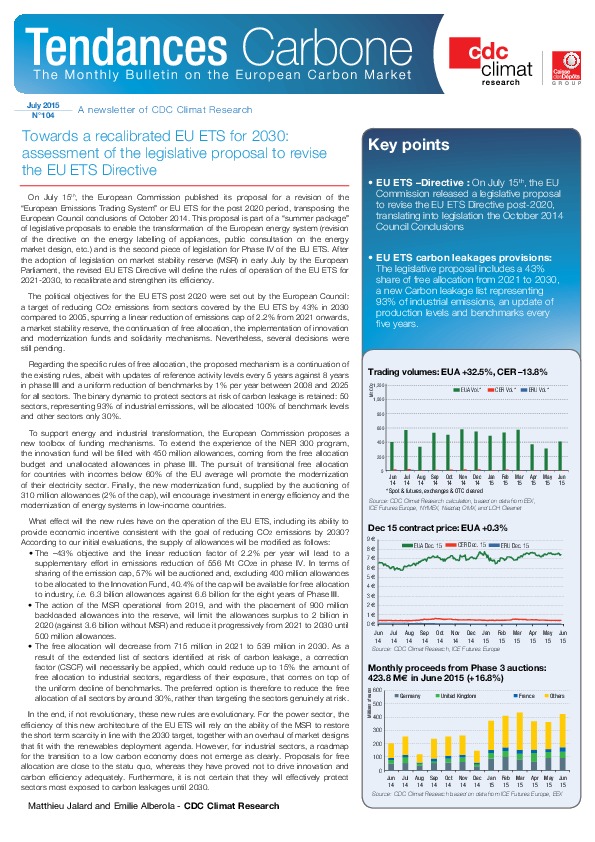Towards a recalibrated EU ETS for 2030: assessment of the legislative proposal to revise the EU ETS Directive
![]() EU ETS –Directive : On July 15th, the EU Commission released a legislative proposal to revise the EU ETS Directive post-2020, translating into legislation the October 2014 Council Conclusions.
EU ETS –Directive : On July 15th, the EU Commission released a legislative proposal to revise the EU ETS Directive post-2020, translating into legislation the October 2014 Council Conclusions.
![]() EU ETS carbon leakages provisions: The legislative proposal includes a 43% share of free allocation from 2021 to 2030, a new Carbon leakage list representing 93% of industrial emissions, an update of production levels and benchmarks every five years.
EU ETS carbon leakages provisions: The legislative proposal includes a 43% share of free allocation from 2021 to 2030, a new Carbon leakage list representing 93% of industrial emissions, an update of production levels and benchmarks every five years.
